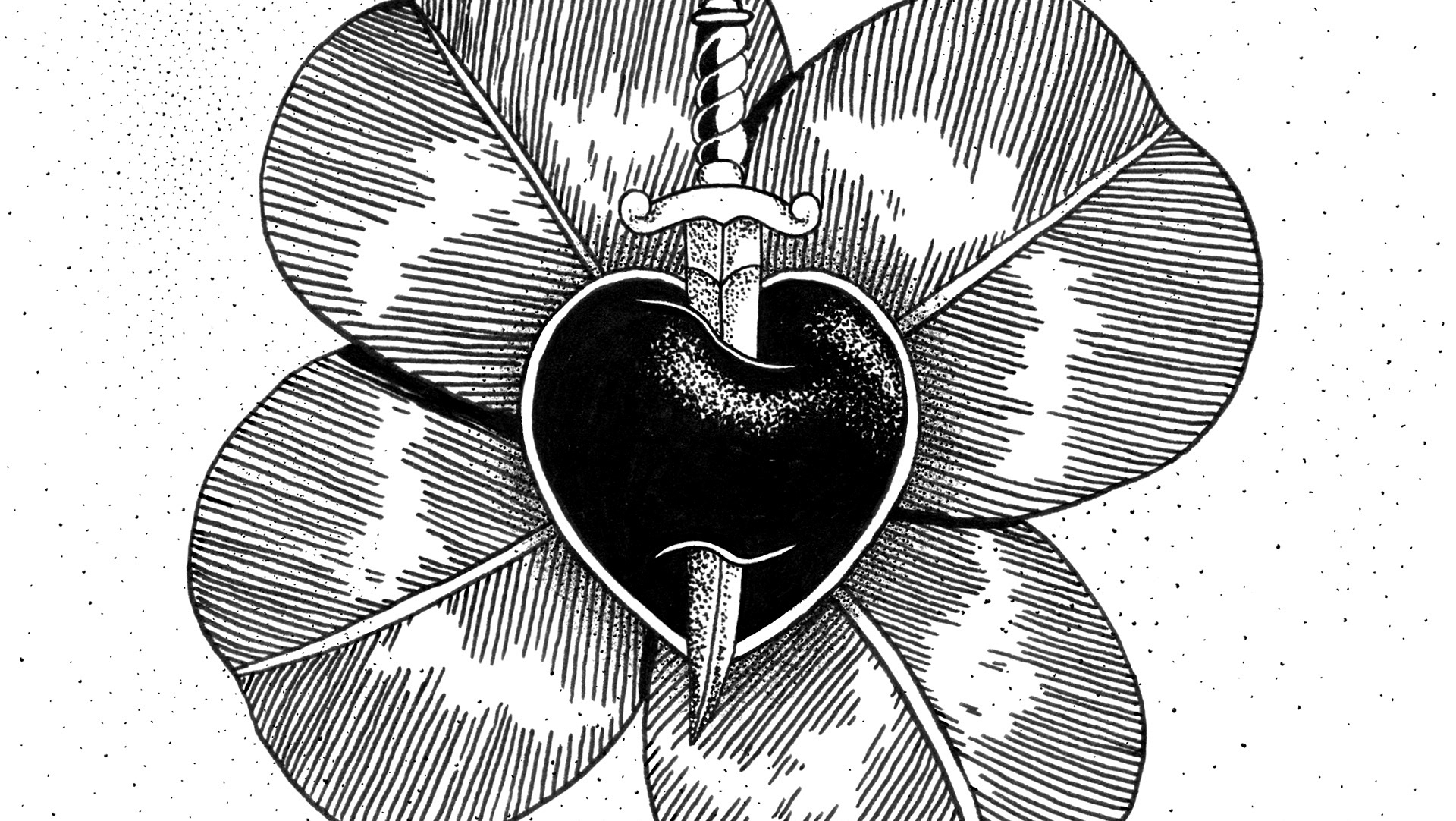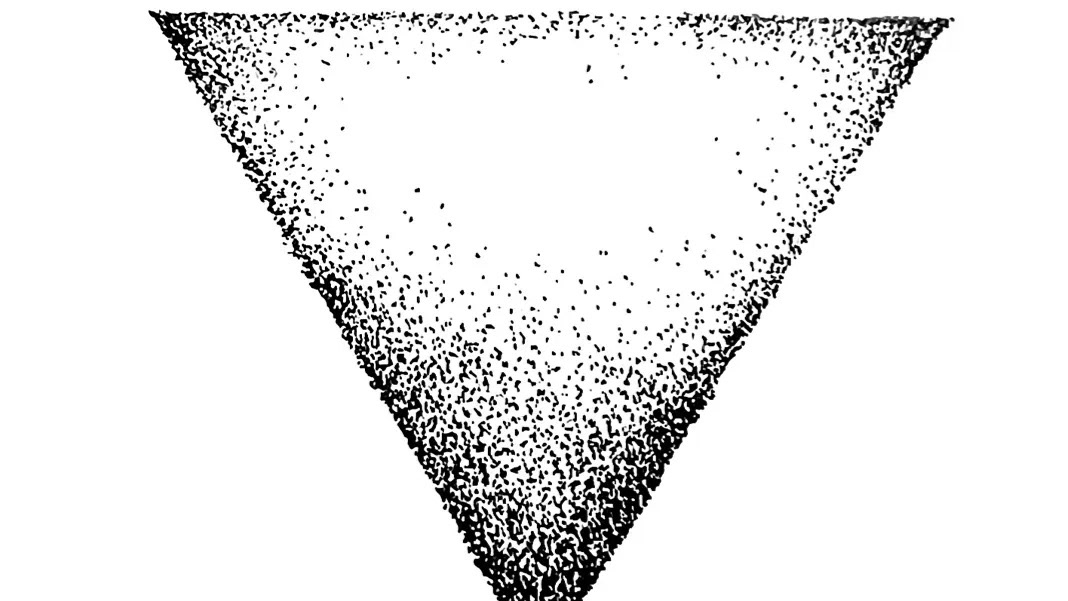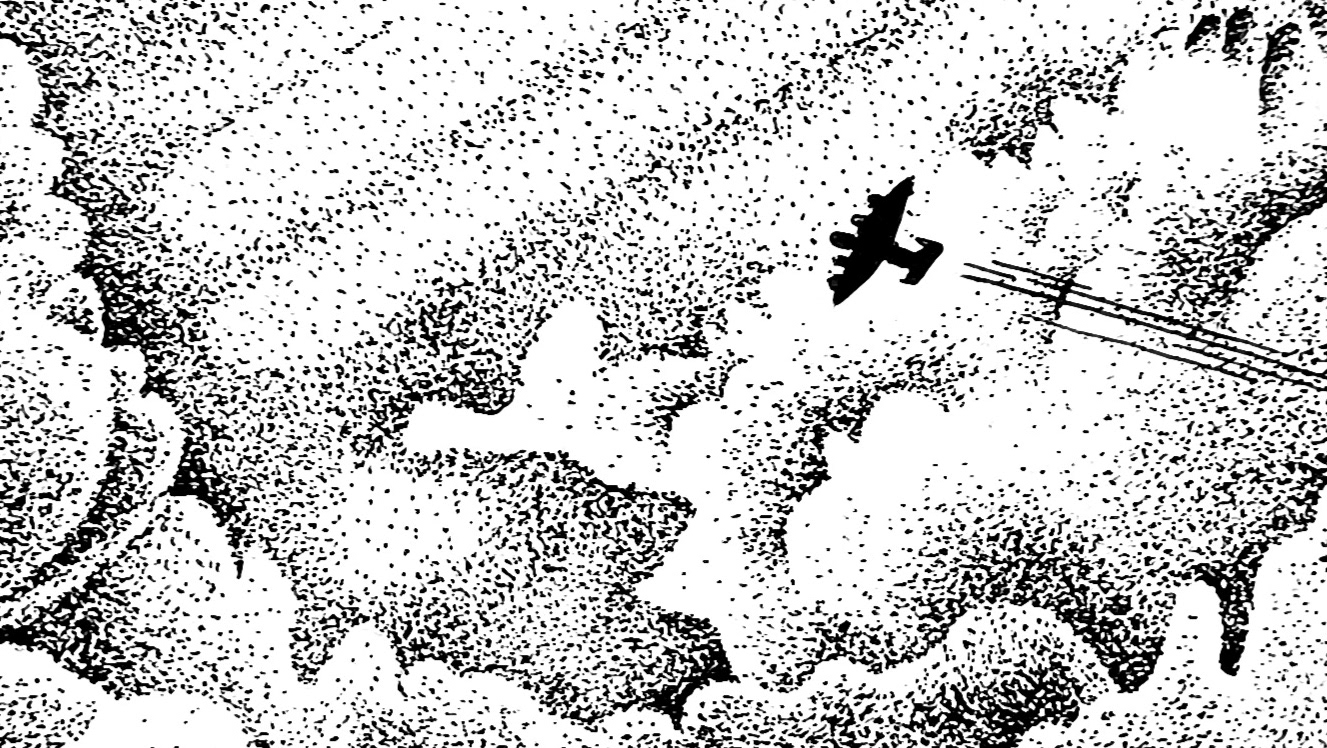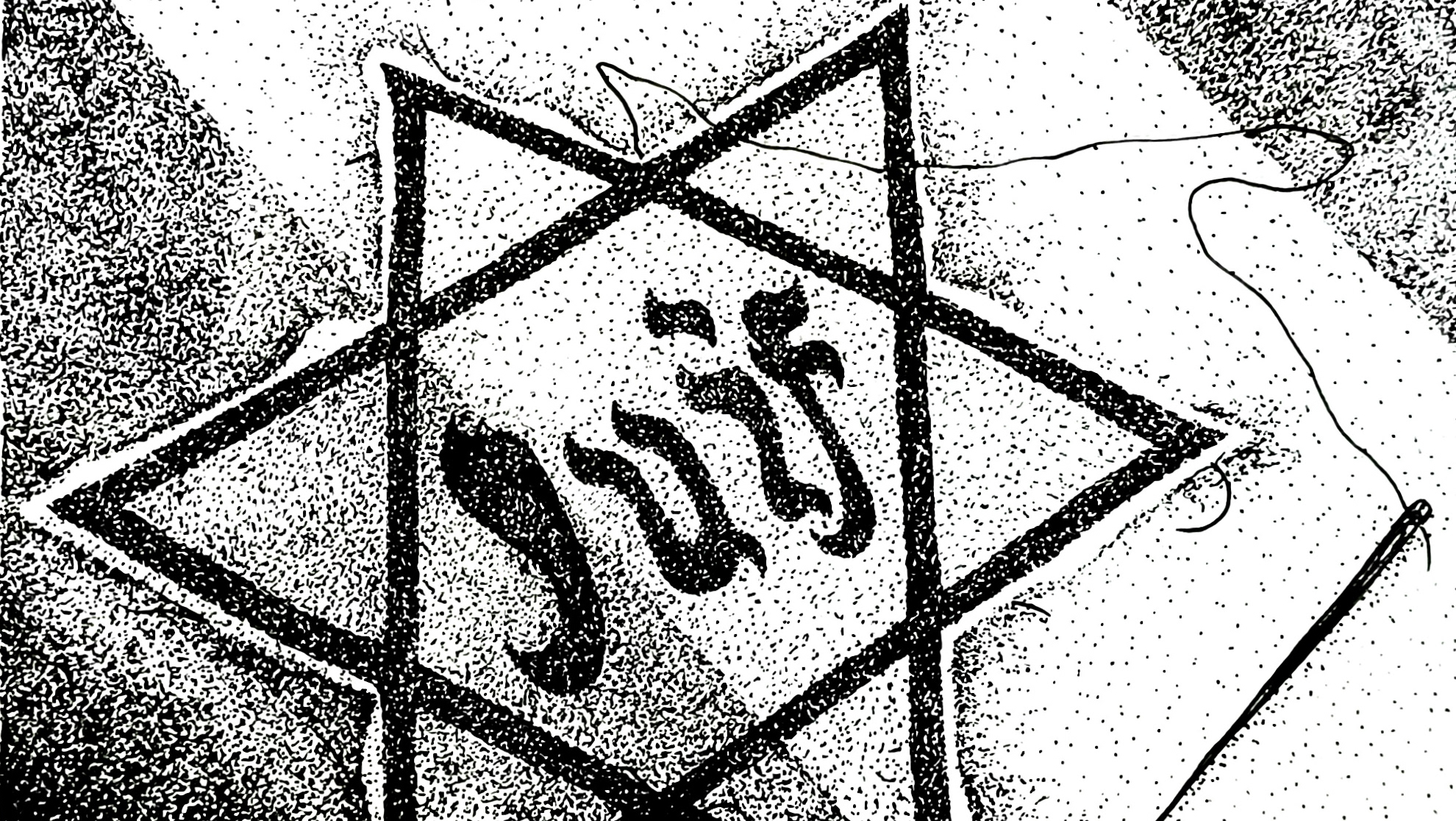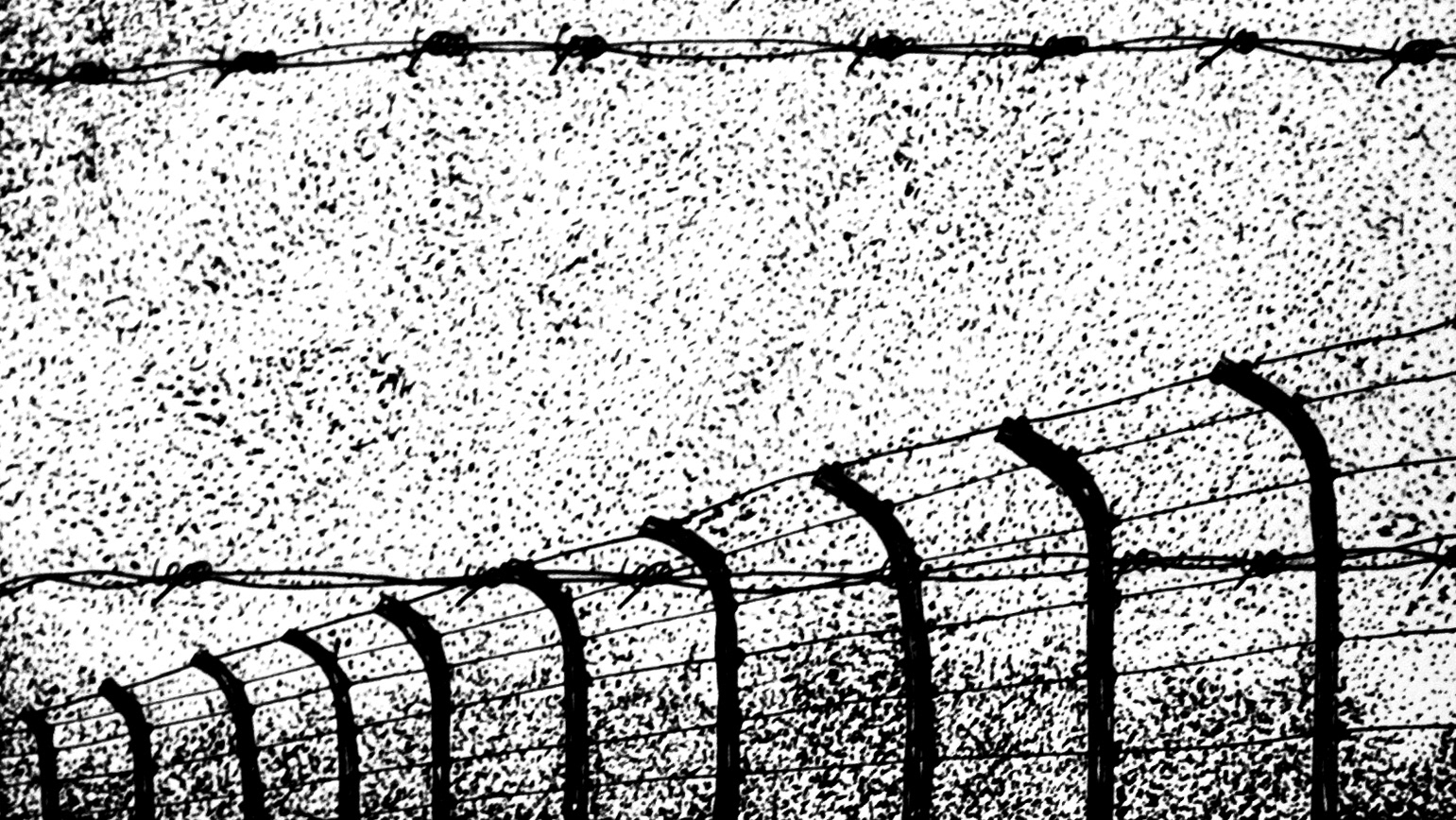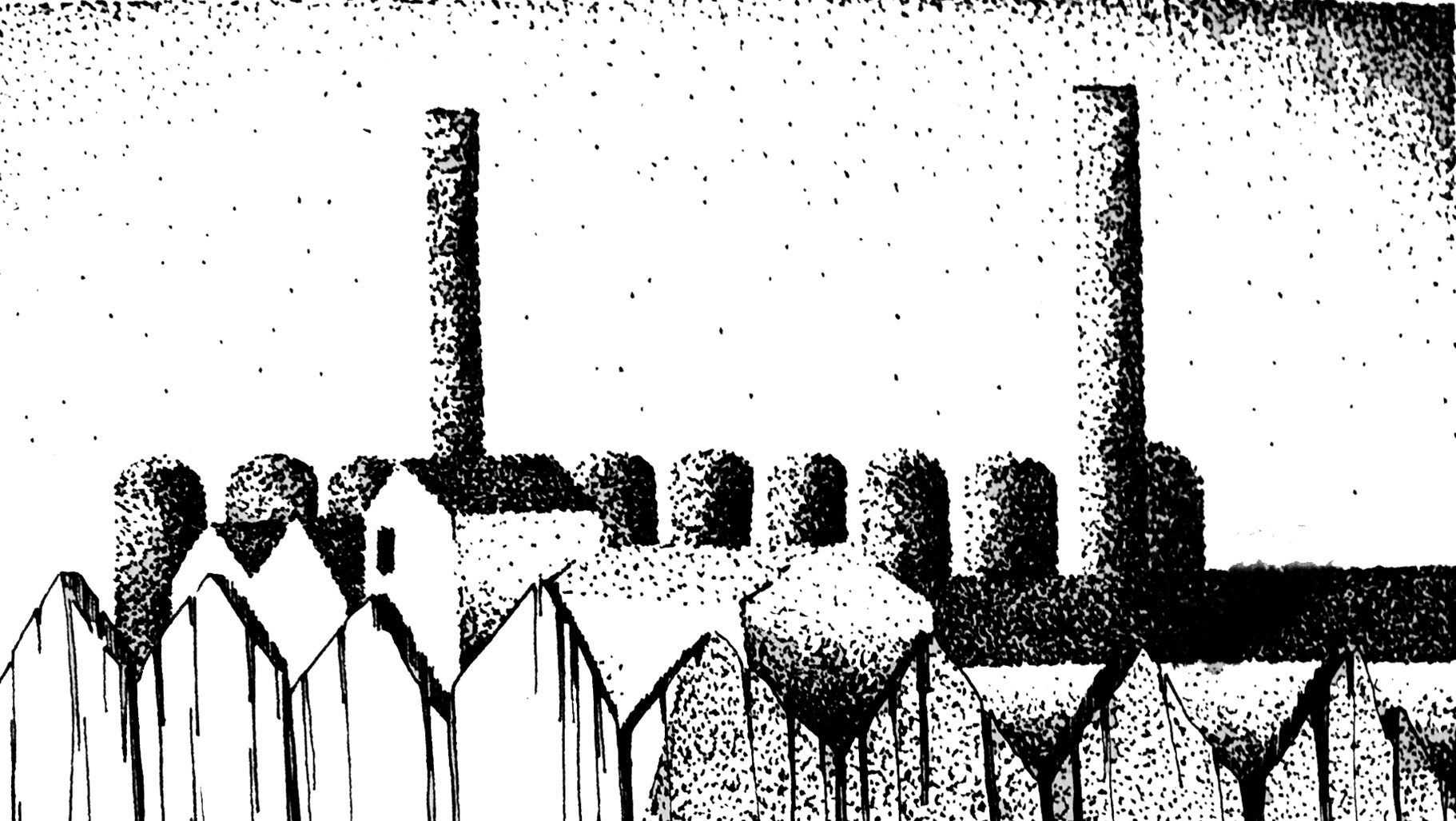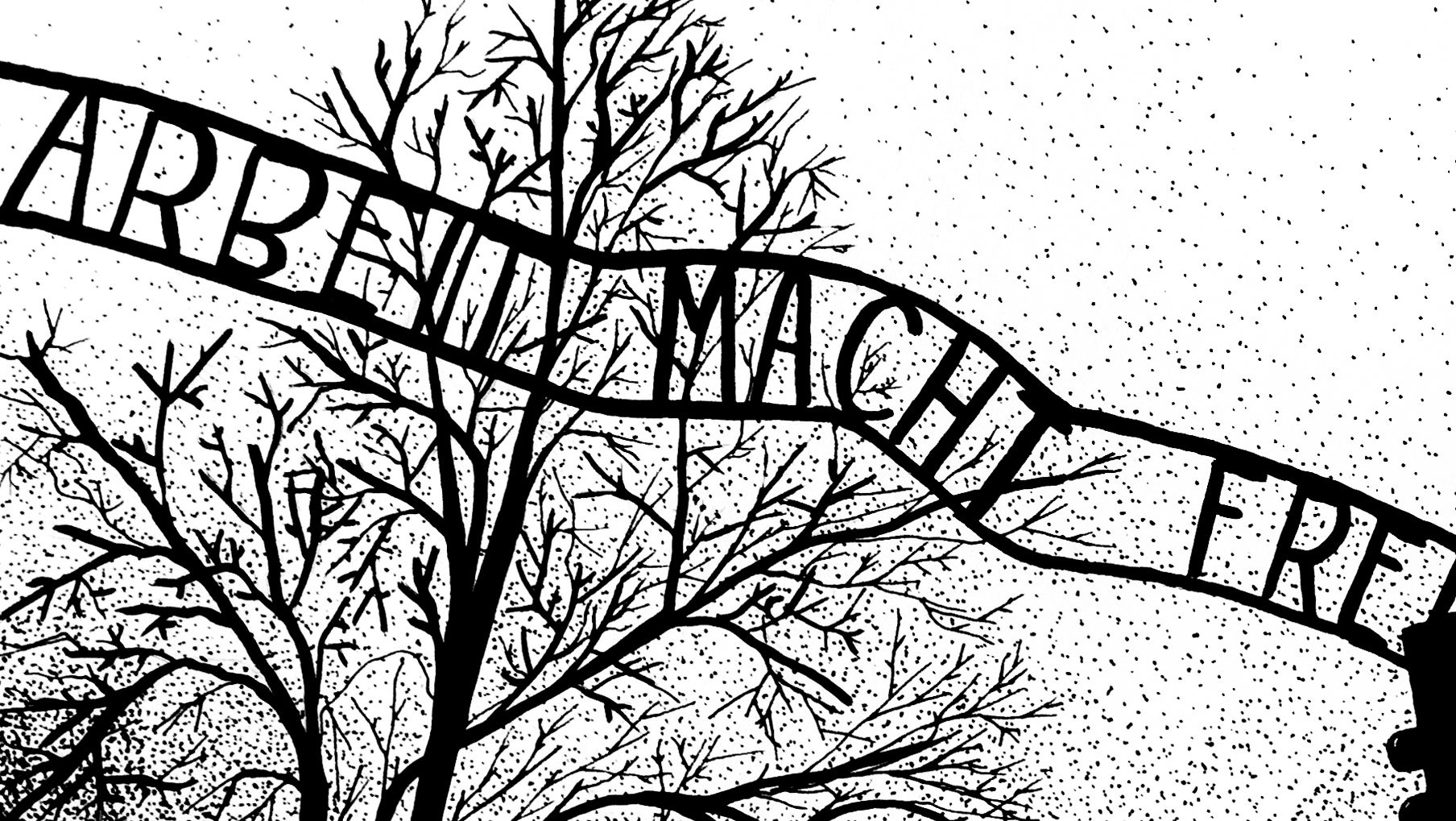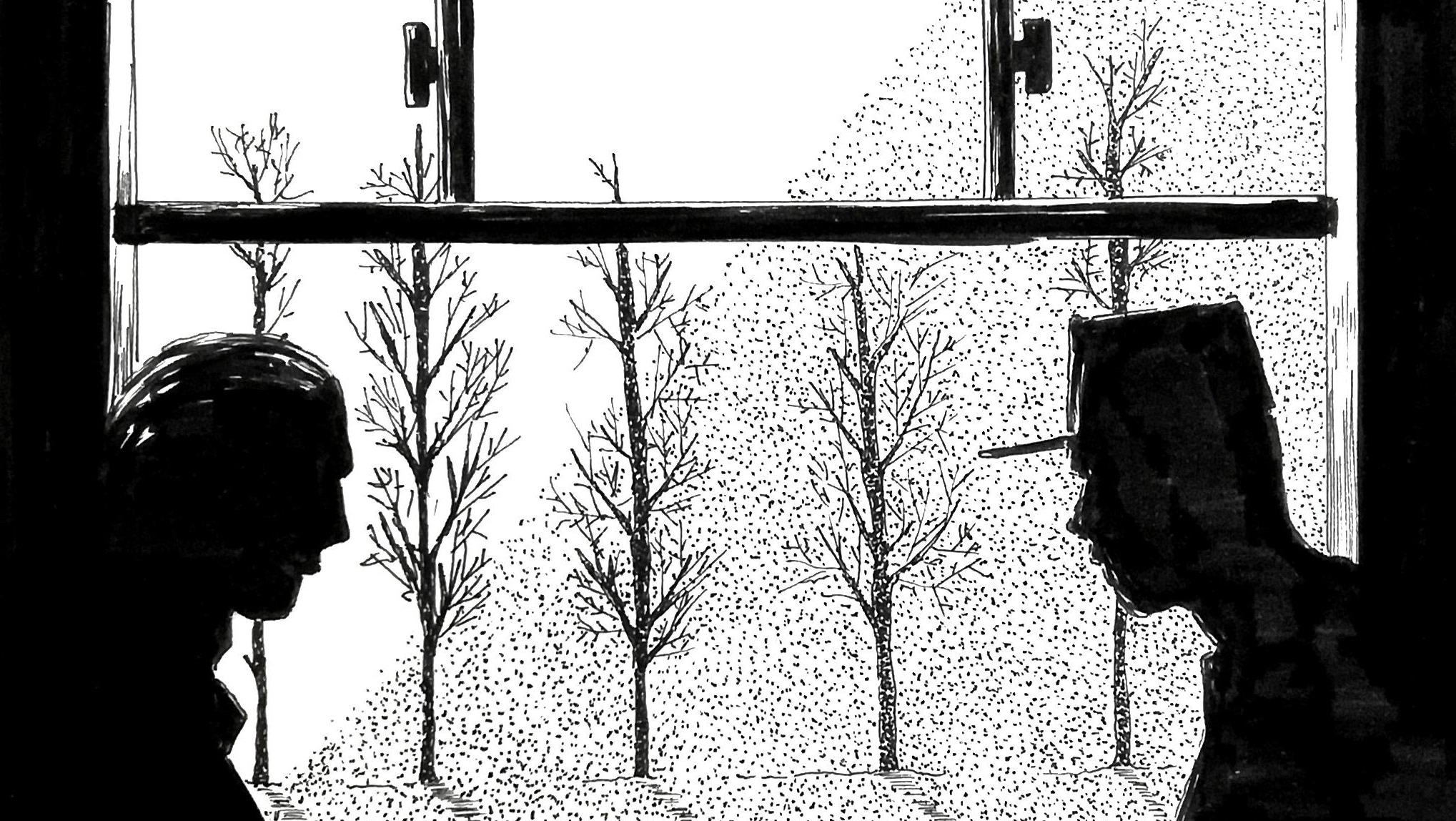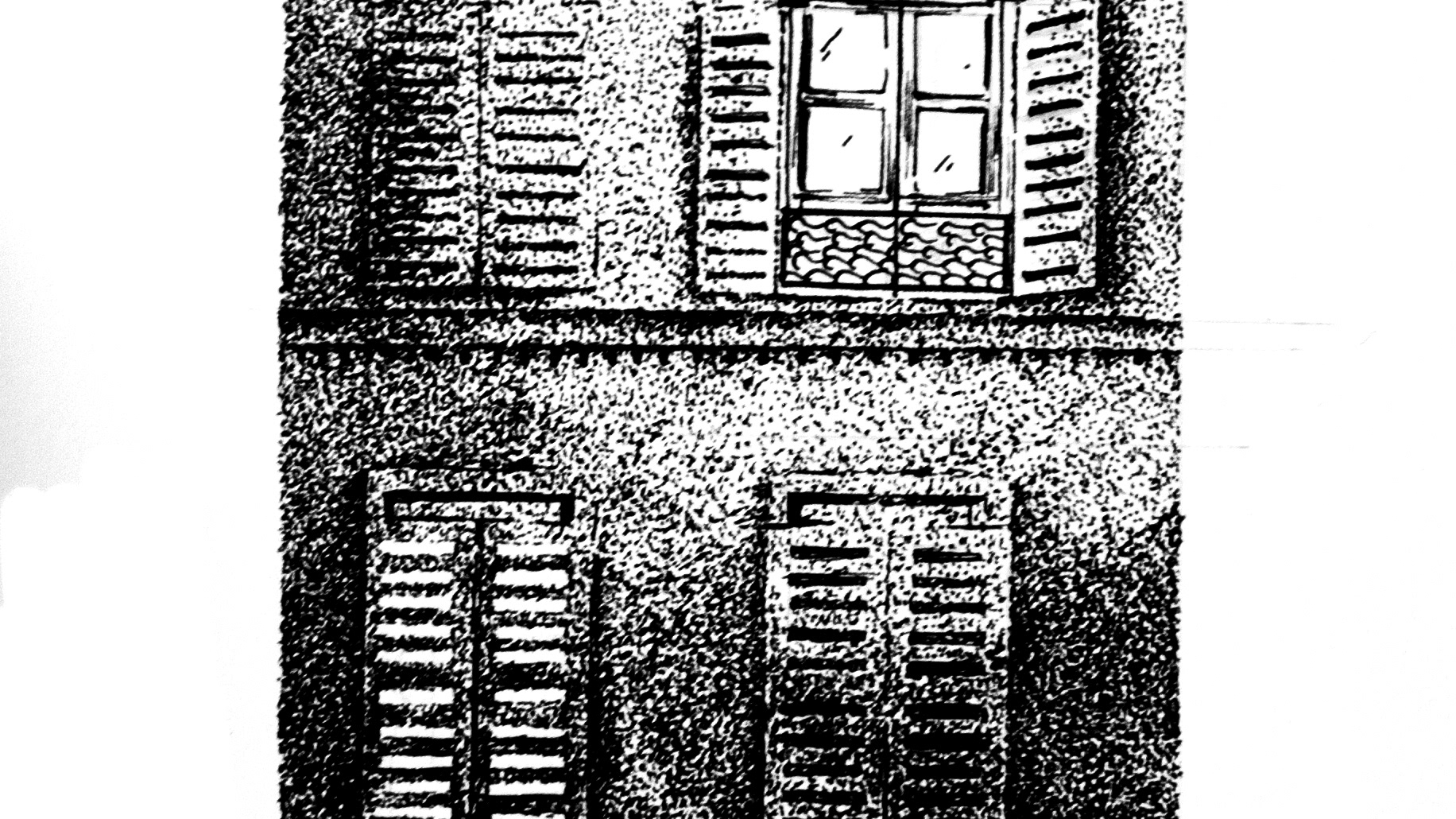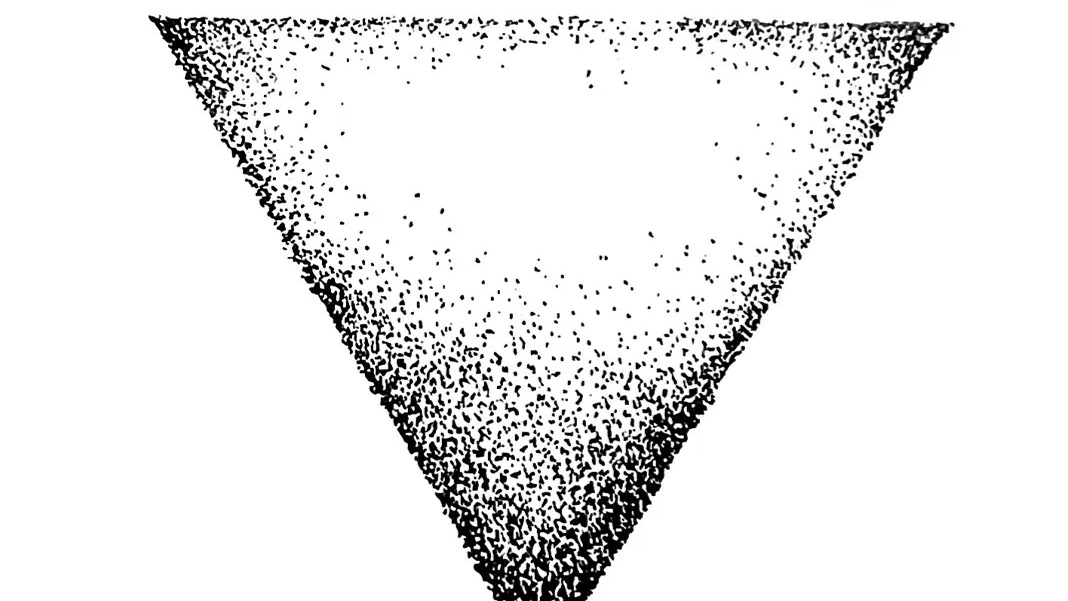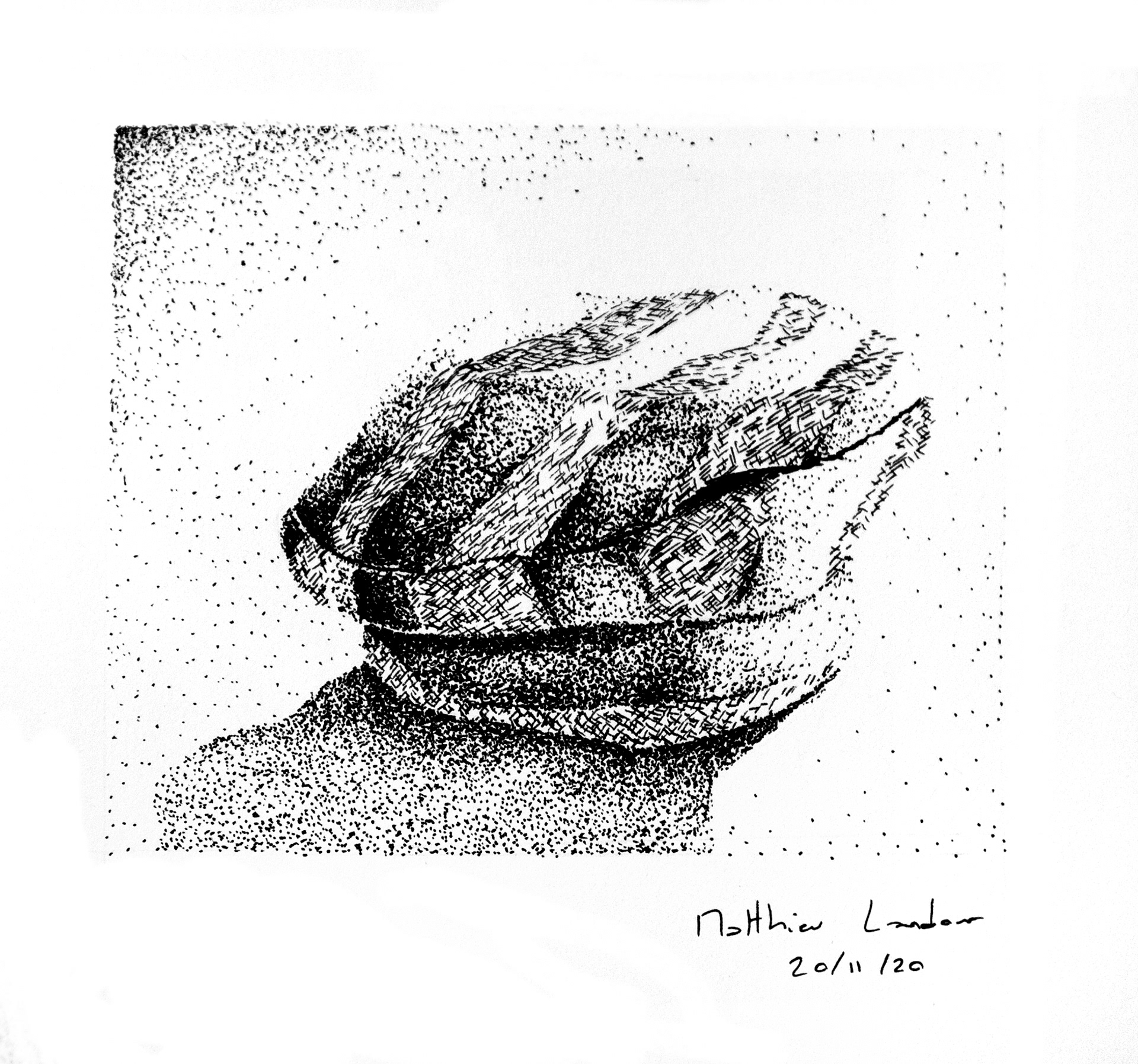
mutze auf
Protect at all costs. Stay with your group at all costs. Care until the last moment.
Today is a day in September, maybe October, in Birkenau. Days repeat over and over again, work is more and more draining, rules more and more absurd. Mutze ab, mutze auf, you must put your cap down, every time you cross a superior, if you wish to avoid violence.
The 45000 have disappeared in high numbers, almost every morning, one or more didn't wake up, they were thrown to a pile on a chariot, which was carried towards the chemines in the distance. The smoke in the air is darker and darker, there is no more doubt what those factories are for. Ovens.
There is no hope here, except for Georges Varenne, who carries hope wherever he walks.
Georges was a teacher, the SS needed no teacher, so he stayed in Birkenau, attached to the canal kommando. It was a difficult kommando, but Georges kept on smiling. He constantly shared his food, too much of it, Georges was losing weight at an alarming speed. But he didn't care, he kept on smiling and sharing, he always had a nice word of encouragement for everyone.
Rene Amand always tried his best to do Georges's work, so he could save a little bit of energy. But Rene was murdered by a SS, for no other reason than randomness, the SS just felt like shooting someone and chose him. Since then, Georges lost his energy even quicker.
During the First World War, Georges quickly became lieutenant. He followed orders, yet always made sure his section was protected. He was smart, cautious yet brave, he always knew how to get the best from his soldiers. Once, he got hurt during an explosion and he went blind for a month at the hospital. Once his first eye recovered, he went back to his section, he didn't even wait for his second eye to recover, nor one of his lungs, it never did.
During the Second World War, Georges was mobilised once more. He didn't fight this time, the defeat went surprisingly fast and he was ordered to bring his section south as soon as possible. Georges protected everyone and his section was one of the few who didn't get captured.
In Royallieu, as one of the three clandestine communist cadres, he was the one you would ask questions, the one reassuring you. As the prisoners built a tunnel to escape, Georges was naturally selected to be one of the 19 to escape, he was too important, he had to go outside and lead the communist resistance. Yet Georges disagreed with what was to be done outside. Where most of the communist leaders, as ordered to by the komintern, believed that it was time for armed resistance, and actions like the future colonel Fabien's attack on a German officer in the subway station Barbès, Georges believed that armed resistance was not yet the right path, as it seemed to have only led to executions of hostages and deportations so far. Georges was a cautious man, and in this case he didn't think the risks had been considered carefully. So Georges Varenne decided to stay, he refused to leave, believing instead that armed actions were to wait, that the population should be prepared to fight through propaganda first, rather than individual acts of violence. Besides, his section was here, not outside, he had Royallieu to protect. Those were his men. There are many ways to resist, protect is one of them.
Back to the present, Georges keeps on protecting, sharing, until his body lets go. One morning, as the kapo of the block, a violent man, starts shouting, he expects Georges to stand and relay, as he always does, so everyone would go out without too much trouble. But Georges doesn't relay, he is not waking up, his eyes stay closed. The kapo understands quickly, and does something unexpected. He asks the 45000 to carry Georges out, to take their hats off, and to stay silent for a minute. He asks for everyone to pay respect to Georges, even the kapo has respect for Georges.
Mutze auf. One must pay respect to a man like Georges.
Notes
Thank you very much for listening to this episode of 3100045000, the story of 2 trains of french members of the resistance. My name is Matthieu Landour Engel, and I am 36 years old as I record this episode.
This episode was about Georges Varenne, a very respected man amongst the 45000, who unfortunately passed away in Birkenau.
I mentioned the First World War in this episode, let me give you a few more pieces of information. The First World War was a major event in the 20th century, it started on the 28th of July 1914 and ended on the 11th of November 1918. It is one of the deadliest conflicts in history, the Second World War being the deadliest, with an estimate of 17 million and 40 million casualties, with includes soldiers, civilians and epidemic related diseases.
The war was between what is referred to by the triple entente, which is France, Soviet Union and Great Britain, and the triple alliance, being Germany, Austria Hungary and Italy. It originated with the assassination of the Archduke franz Ferdinand in Sarajevo on the 28th of June, which led to an ultimatum from Austria-Hungary to Serbia, and, through a system of alliances, soon enough most countries in Europe plunged into the war. It became a worldwide conflict as Africa, Asia and America joined the conflict. Japan, for example, sided at the time with North America and the Allies. france was a major front during the First World War, leading to what is referred to as trench warfare, where positions barely moved for a couple of years, and soldiers literally had to live inside a network of trenches. The movies path of glory by Stanley Kubrick, which I personally love, and 1917 by Sam Mendes, which I personally don't love, describe trenches very well. I would also recommend a very long engagement by Jean Pierre Jeunet, which is an incredible movie.
The first world War was still a heavy infantry based conflict, yet it introduced the use of mechanized artillery, like tanks, submarines and cruisers, aerial bombings and the use of chemical weapons.
It led to the humiliation of Germany, who resented the cost of the armistice, and later, became one of the reasons of the rise in power of the nazi party. It also led to the revolution of October and the start of the communist front and the Soviet Union.
It was a traumatic event, and it is no surprise that many soldiers truly didn’t want to be part of any other event like this one. It was the case for men like Georges Varenne, who were strong advocates against any new world conflict.
As a professor and a soldier you can also easily understand that Mr Varenne strongly hesitated, if not disagreed, with the communist directives at the time to launch a series of individual armed actions like the one colonel Fabien did on the 21st of August 1941. Those actions were part of a plan to disrupt the life in occupued territories like France, and force Nazi Germany to move troops, therefore hopefully weakening a little the eastern front. Those were not careful planned attacks, many disagreed and wished for better coordination and communication, or propaganda, with the french public before launching armed attacks.
I was lucky to be in touch with Michel Cordillot, Georges Varenne's grandson, historian, specialising in social history. He kindly gave me some notes on my work. He pointed out, and he was right to do so, that the story of the kapo asking for the prisoners to pay their respects to Mr Varenne was a story only confirmed by one person. At the end of the war the communist party picked up some individuals and made them martyrs, sometimes telling their stories with thicker brushes, making them larger than life, so it may be the case with this story. On the other hand, Mr Varenne was a decorated soldier during the first world war, and even though there wasn't a great deal of respect toward the french political prisoners at first in Auschwitz Birkenau, there was respect towards world war one soldiers, so it is possible that this story actually happened this exact way, that the kapo wished to pay respect to Mr Varenne due to his military rank. I choose to believe that Mr Varenne was a respected man to the end, even in the eyes of a violent kapo.
My sources for this story are the book red triangles in Auschwitz, by Claudine Cardon Hamet, the website memoire vive and the foundation for the memory of deportation website and the fantastic website auschwitz.org .
This is it for today, thank you very much for your attention,the next episode will be about Rene Perrault and the barbwires.
